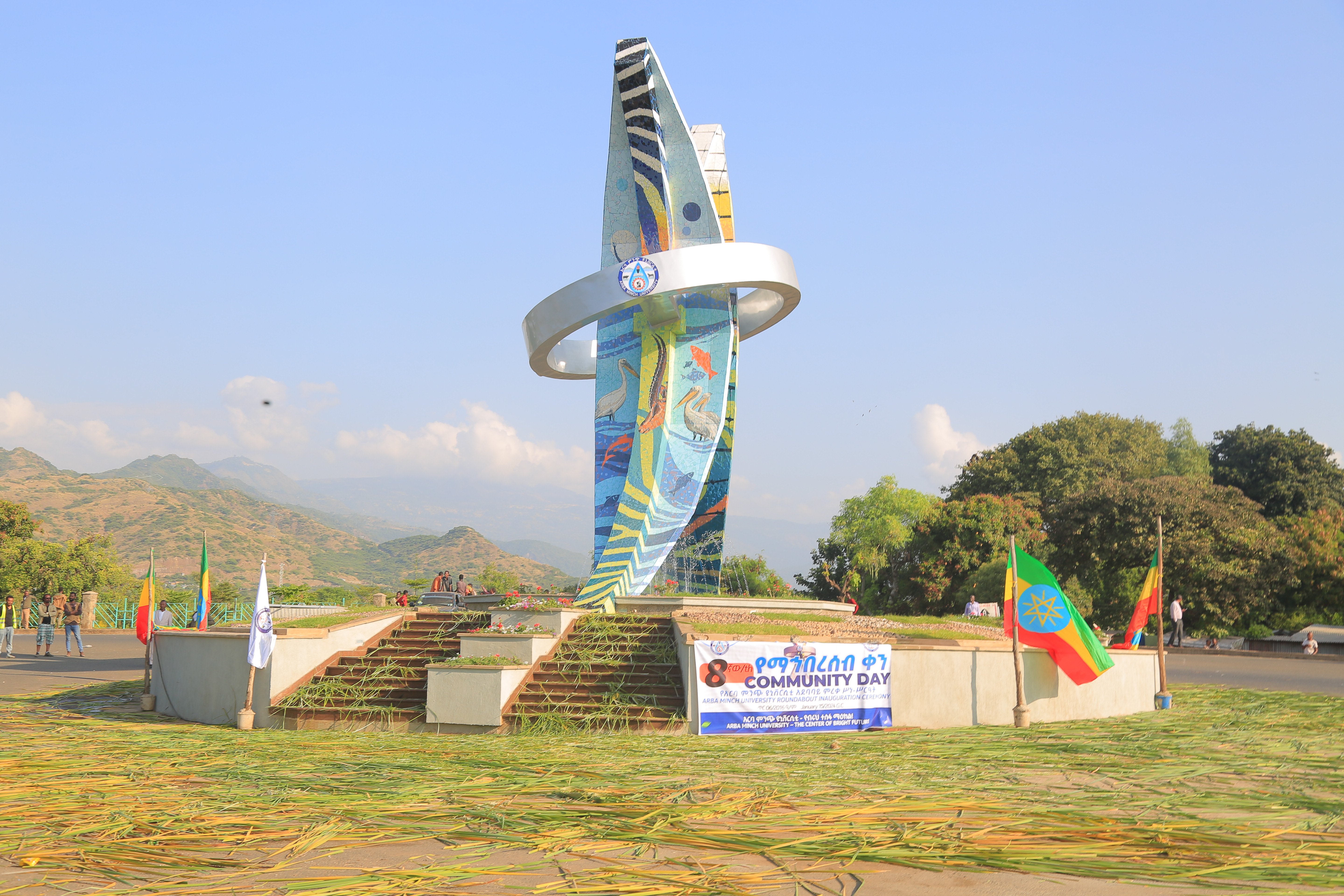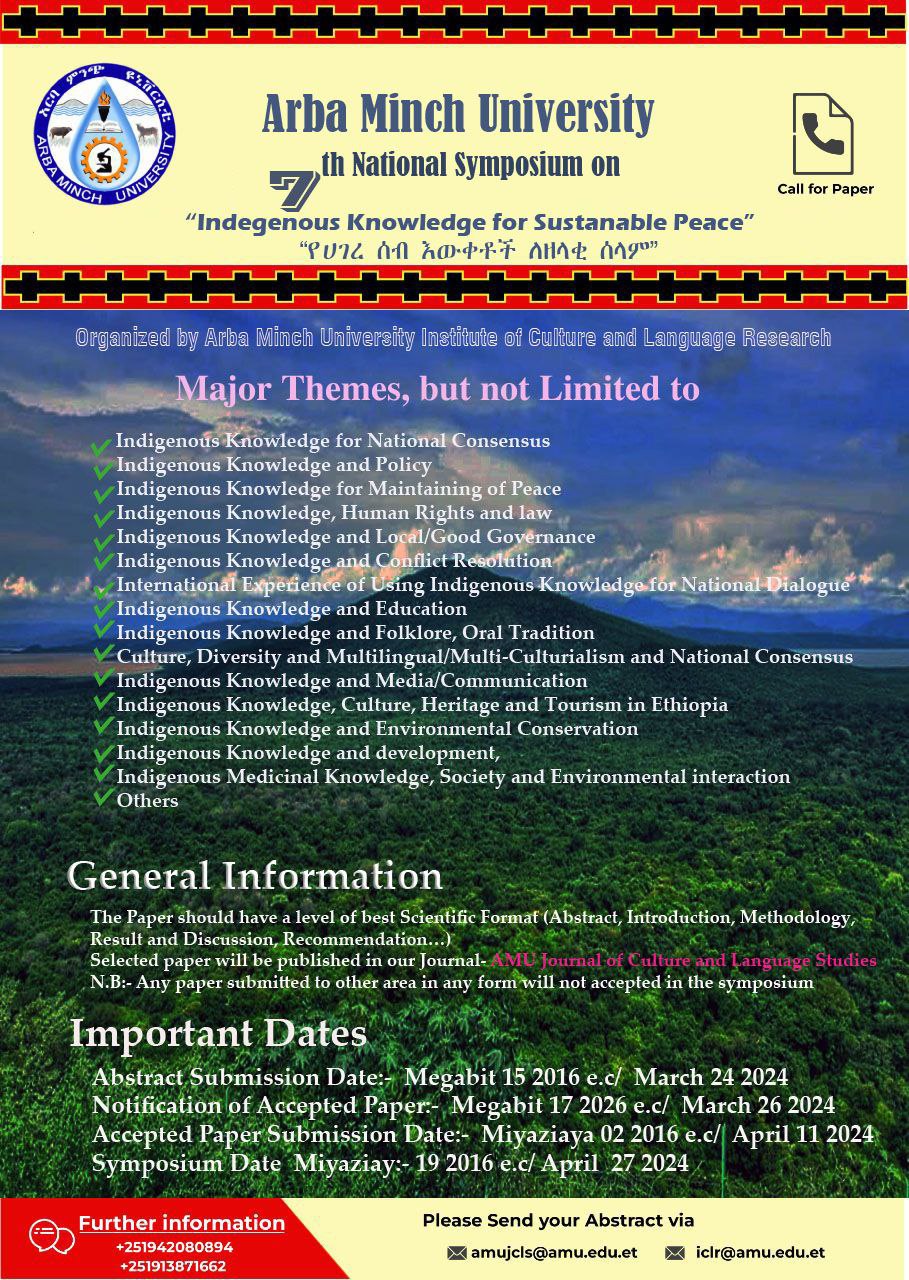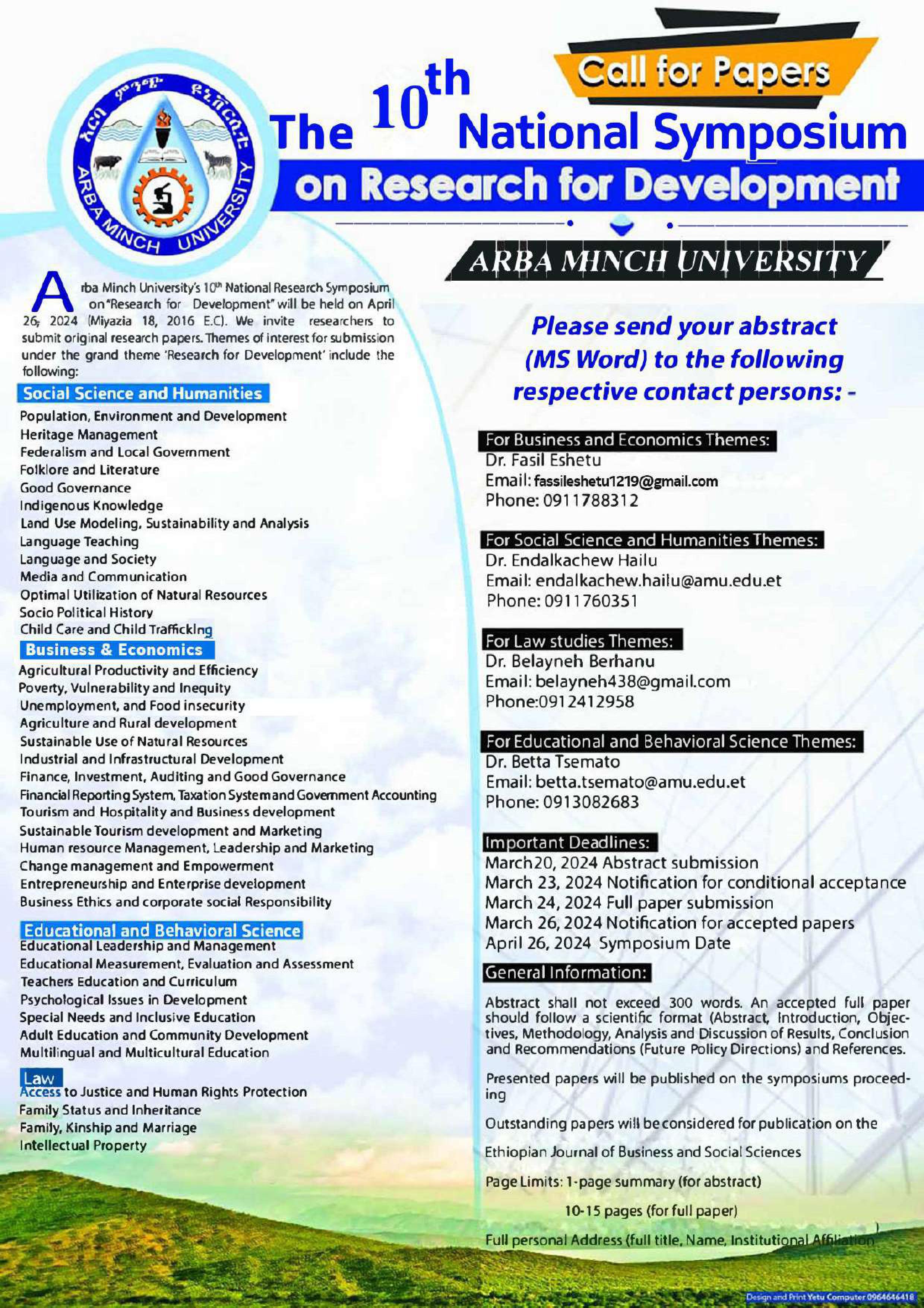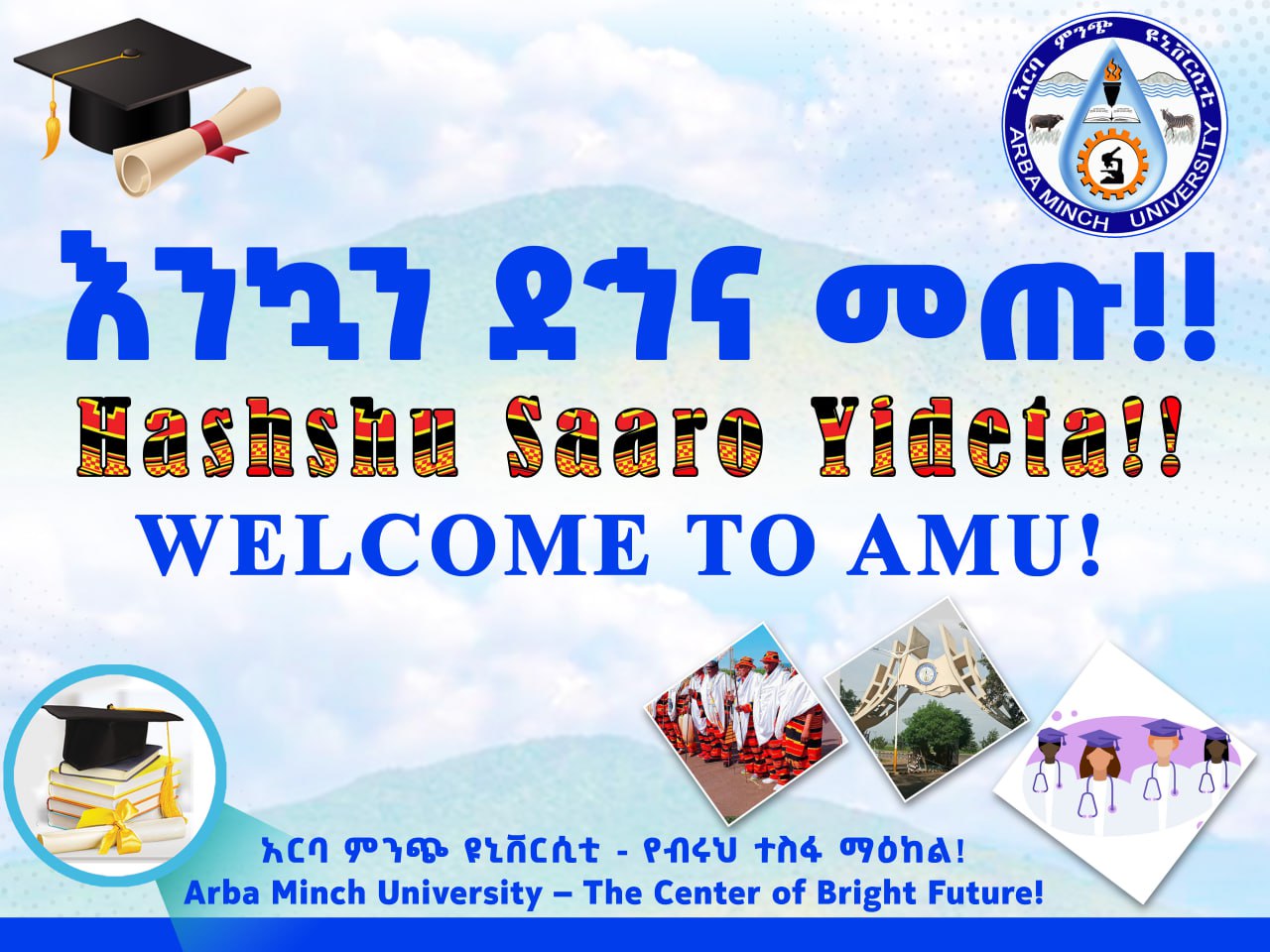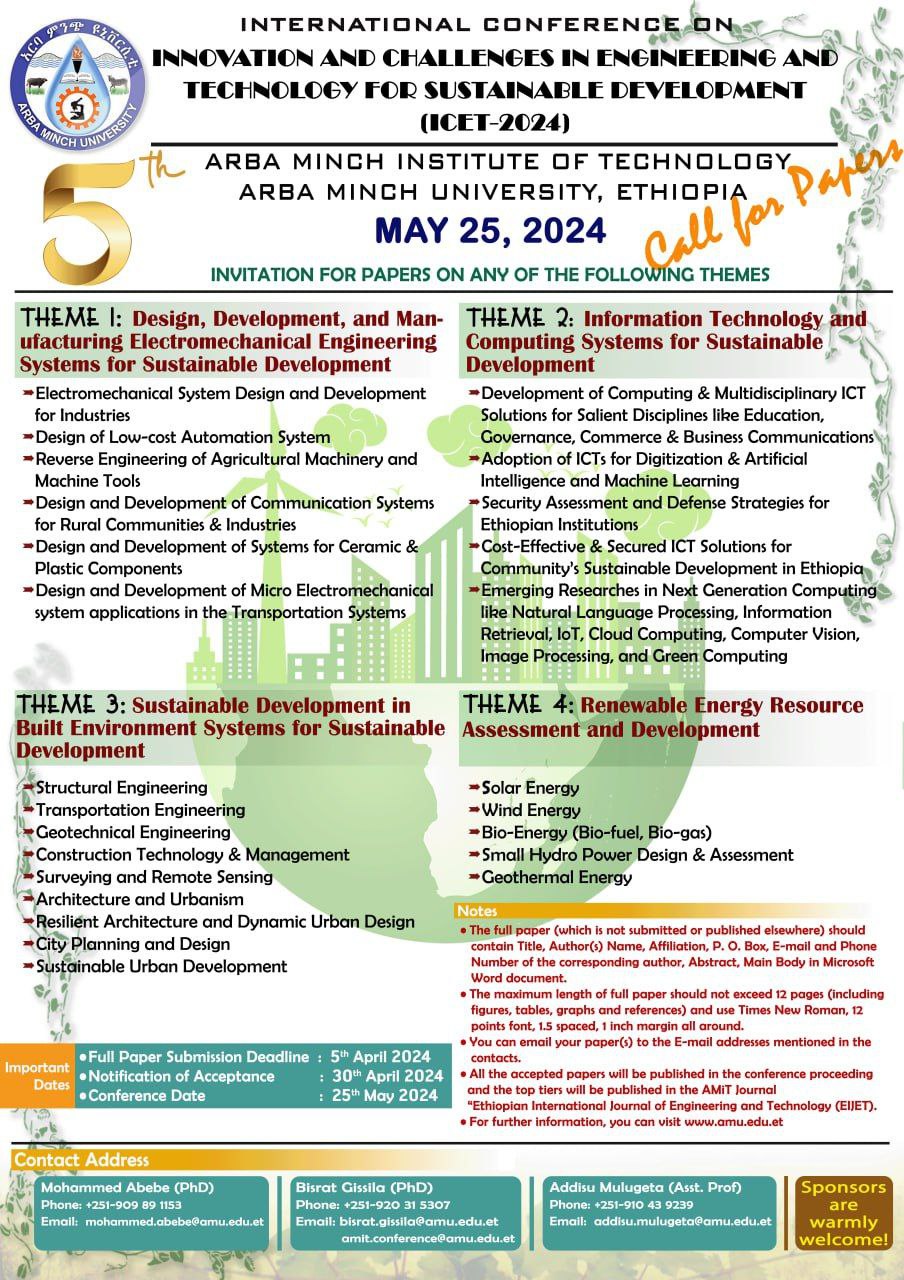AMU has netted another global project - ‘The Rural-Urban Nexus: Establishing a nutrient loop to improve city region food system resilience’ (RUNRES), a flagship project of ETH Zurich World Food System Center is funded by Global Program Food Security of Swiss Agency for Development and Cooperation.Click here to see the pictures
Research and Community Service Vice President, Dr Simon Shibru, is the Coordinator of this project, having partaken Sustainable Agro-Ecosystem Group meeting in Nairobi, Kenya, said, this endeavor will be conducted in Democratic Republic of Congo, Rwanda, Ethiopia and South Africa in collaboration with International Institute of Tropical Agriculture, Arba Minch University and University of KwaZulu-Natal.
It’s aimed at co-establishing safe, efficient and socially acceptable innovations to close nutrient loop and install a circular economy to improve resilience of people in the targeted city region food systems. It will be addressed in 1st phase of 4-year in pilot studies in designated cities, Bukavu, Ruvenzi, Arba Minch and Msunduzi of four nations; if successful this project might be scaled up in 2nd phase of 4-year, and slated to get operational from May 1, 2019.
In this regard, a weeklong planning workshop was chaired by Switzerland Project Coordinator, Prof Johan Six including partners have discussed area-specific solutions for common issues and drafted a yearlong activity plan. On occasion, AMU and including partners presented situational analysis and deliberated upon how to use waste that will help in establishing circular economy away from the linear one, he added.
Elaborating circular economy, he said, having recycled waste after producing compost that will boost yield and left-over urban waste again will be reused and food items repackaged to add value that reassuringly benefit farmers and end-users.
The overall budgetary allocation for this project is ᵮ 3.8 Million (Swiss Franc) of which tranche of ᵮ 456,000.00 (ETH 14 Million) belongs to AMU; the total break-up for 1st, 2nd, 3rd & 4th years will be ETH 4.5, 4, 3.5 and 1.4 Million respectively. Soon, AMU will establish office and recruit staff including Project Manager, experts, Consultants etc. and also will purchase technologies and carry out miscellaneous tasks.
The project will establish Trans-Disciplinary Innovative Platform (TDIP) to facilitate different things and get performance monitored and evaluated; being developmental project, it requires involvement of different partners – Municipality, urban agricultural offices, micro, small enterprises, private sector and farmers. Technologies established by faced-out project ROSA might be used to spawn innovations.
Exemplifying activities, he said, activities such as identifying and contacting potential stakeholders to rationalize TDIP, baseline survey of Arba Minch and rural area, appointment of focal person from municipality, tapping more funding, organizing kick-off for TDIP and follow-up meetings will continue.
From May, 2019 to April, 2020, he adds, we will carry out detailed analysis of project area, socio-economic profiling, social acceptability survey, food-value chain; follow-up meeting for pre-identified suitable innovations to assess and select them for subsequent years, providing technical training for solid-waste collectors and identifying implementers, etc. at last sub-contracts will be inked.
The project actually envisages circular economy by emphasizing on composting of organic waste (rural-urban waste) with processing plants on small scale; it will pave the way for cleaner and healthy city, improved livelihood and resilience of food value chain where rural and urban dwellers get benefitted.
Dr Simon Shibru is a member of Project Steering Council whereas Dr Kinfe Kassa is a strategic partner; the formal agreement in this regard will be signed in May, 2019, he signed off.
(Corporate Communication Directorate)
